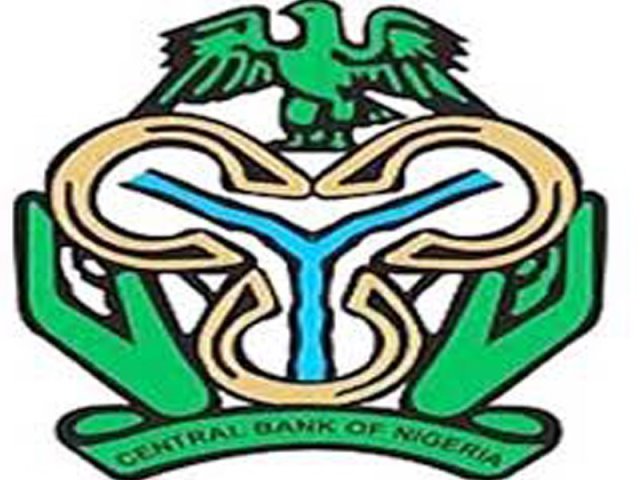E-Financial
CBN says TSA Transactions Value Hit N13.53trn in 2017

The Central Bank of Nigeria (CBN) says the migration of the Federal Government Ministries, Departments and Agencies (MDAs) to the Treasury Single Account (TSA) has led to positive growth in the value and volume of transactions recorded in end to end payments in 2017.
The bank made the assertion in the 2017 Annual Activity Report released by its Banking and Payments System Department on its Website.
It also attributed the growth to the rise in the number of MDAs accounts migrated to the TSA.
The CBN said that the value of transactions recorded at the period reviewed stood at N13.53 trillion from the N10.65 trillion in 2016, representing an increase of 27.01 per cent.
The apex bank also said that volume of transaction grew with an increase of 3.84 per cent to record 39.7 million in 2017 as against the 38.24 million recorded in 2016.
According to the CBN, the payment instructions comprises recurrent, overhead and capital expenditure.
On the TSA implementation, the bank added that during the year, stakeholders’ engagements took place to improve the operations and address some of the challenges facing it.
“In order to engender healthy competition and ensure effective service delivery, the Federal Government’s TSA payment gateway model was modified to accommodate other service providers.
“The aggregator model was developed to bring in more players into the e-collection process, thereby providing a level playing ground for all the Payments Service Providers (PSPs), with NIBSS as the aggregator.
“The initiative was driven by the Federal Ministry of Finance (FMF) with the Office of the Accountant General of the Federation (OAGF) as the implementing agency, in collaboration with the Central Bank of Nigeria,” it said.
E-Financial
FG to Train 100,000 Youths Annually in Forex Trading and Financial Skills

Federal Government of Nigeria has signed a Memorandum of Understanding (MoU) with Investonaire Academy to train 100,000 young Nigerians annually in forex trading, financial planning, and risk management.

The agreement, signed in Abuja, was announced by Omolara Esan, Director of Information and Public Relations at the Federal Ministry of Youth Development. According to her, the initiative is part of the government’s broader strategy to reduce youth unemployment and enhance financial inclusion.
At the signing ceremony, Minister of Youth Development, Comrade Ayodele Olawande, described the partnership as a milestone in the ministry’s efforts to equip young Nigerians with practical financial skills. He emphasized that the programme would foster critical thinking, improve digital literacy, and expand access to global economic opportunities.
Speaking on the collaboration, Dr. Enefola Odiba, International Programme Director at Investonaire Academy, highlighted the importance of empowering youth with relevant financial and digital skills. He described young people as essential drivers of innovation and national development.
The ministry assured that the programme would be implemented with transparency and measurable outcomes, ensuring that participants gain practical expertise in forex trading and financial planning.
The Federal Government has recently intensified efforts to boost skill development across various sectors. A separate plan aims to train 100,000 artisans nationwide, following the successful upskilling of 29,000 individuals in previous phases. This initiative seeks to professionalize vocational trades, eliminate quackery, and introduce licensing systems.
Additionally, technicians from specialized institutions will receive industry-standard training to strengthen Nigeria’s labor force and increase self-reliance in skilled professions.
Through these efforts, the government hopes to position Nigerian youth for economic success both locally and globally.
E-Financial
NDIC Begins Final Settlements to Creditors of Liquidated Premier Bank

Nigeria Deposit Insurance Corporation (NDIC) has begun the final phase of liquidation for the defunct Premier Commercial Bank, initiating the payment of liquidation dividends to verified creditors, nearly 25 years after the bank’s closure.

Premier Commercial Bank had its operating license revoked by the Central Bank of Nigeria (CBN) on December 20, 2000, following findings of financial instability and regulatory non-compliance.
Since then, the NDIC has overseen the bank’s liquidation process under a winding-up order from the Federal High Court, which designated the corporation as the official liquidator.
In a public announcement, the NDIC invited all eligible creditors to visit any of its zonal offices between June 2 and June 27, 2025, to verify and claim their entitlements.
This move marks a critical milestone in the final settlement of claims related to the bank’s collapse.
To facilitate the verification process, creditors are required to present proof of deposit or shareholding, such as a passbook, chequebook, term deposit certificate, or bank statement.
Additionally, valid identification documents must be submitted, including a driver’s license, international passport, national identity card, NIN slip/card, voter’s card, or a formal identification letter from a traditional ruler or local government chairman.
The NDIC assured the public that the ongoing settlement is part of a broader effort to bring closure to longstanding claims resulting from Premier Commercial Bank’s liquidation. The process, according to the corporation, has been designed to ensure efficient disbursement to all verified stakeholders.
Premier Commercial Bank is one of 53 deposit money banks whose licenses were revoked by the CBN between 1994 and 2018 due to various violations and signs of financial distress.
These closures were followed by legal procedures appointing the NDIC to manage asset recoveries and creditor settlements.
By initiating this final phase of payment, the NDIC is reaffirming its commitment to financial system stability and depositor protection while calling on all affected individuals and institutions to complete verification processes promptly to receive their due compensation.
E-Financial
SEC Directs Companies to Honour Unclaimed Dividend Requests

Securities and Exchange Commission (SEC) has directed all public companies and Registrars to stop treating unclaimed dividends older than 12 years as “statute-barred”, especially those dating from before the enactment of the Finance Act 2020.

The directive reaffirms the provisions of Section 60 of the Finance Act, which mandates that dividends unclaimed for over six years be transferred to the Unclaimed Funds Trust Fund (UFTF), where they remain accessible to shareholders pending claims.
The Commission said that shareholders are entitled to continue to claim their dividends that are not statute-barred (that is not above 12 years) before December 31, 2020 “when the Finance Act 2020, came into effect.”
According to the SEC in a Circular, “The attention of the Securities and Exchange Commission has been drawn to the fact that paying companies and their Registrars have continued to treat unclaimed dividends of public companies that are older than 12 years as being “statute-barred” without recourse to the provisions of the Finance Act 2020.
“In response to various inquiries on the subject, the Commission hereby clarifies as follows: The import of the provisions of Section 60 of the Finance Act 2020 (December 31, 2020), is that, where dividends declared by a public company quoted on the Nigerian Exchange Limited remained unclaimed for a period of six years or more, such dividends are expected to be transferred to the Unclaimed Funds Trust Fund (UFTF) to be held in trust and managed pending when the shareholder presents a claim for such unclaimed dividends.
“Pending the setting up and operationalisation of the UFTF by the Federal Government, pursuant to its powers under Sections 3 (4) (e) and 93 of the Investments and Securities Act 2025, the Commission hereby directs public companies and their Registrars to continue to honour all requests by shareholders for the payment of unclaimed dividends as described above, with effect from December 31, 2020”.
The Commission therefore directed public companies and Registrars to effect immediate compliance with the directive and submit periodic reports on same in the manner prescribed in the Commission’s Rules and Regulations.

 News3 days ago
News3 days agoCDCFIB Warns against Recruitment Racketeers

 Telecom3 days ago
Telecom3 days agoMeta, FMCIDE Unveil AI Accelerator to Drive Innovation in Nigeria

 News3 days ago
News3 days agoFG May Forfeits $4m from World Bank Loan over Audit Flop

 Telecom3 days ago
Telecom3 days agoNigeria Leads the Charge in Green Innovation @MTN’s Africa PachiPanda Challenge

 Broadcasting3 days ago
Broadcasting3 days agoAfia TV and Radio Stamps Footprints in Lagos

 E-Financial3 days ago
E-Financial3 days agoNDIC Begins Final Settlements to Creditors of Liquidated Premier Bank

 Telecom2 days ago
Telecom2 days agongCERT Issues High Alert to Nigerians Using Android Phones

 E-Business2 days ago
E-Business2 days agoAfrican Startups Raised $345m in Funding in May


























